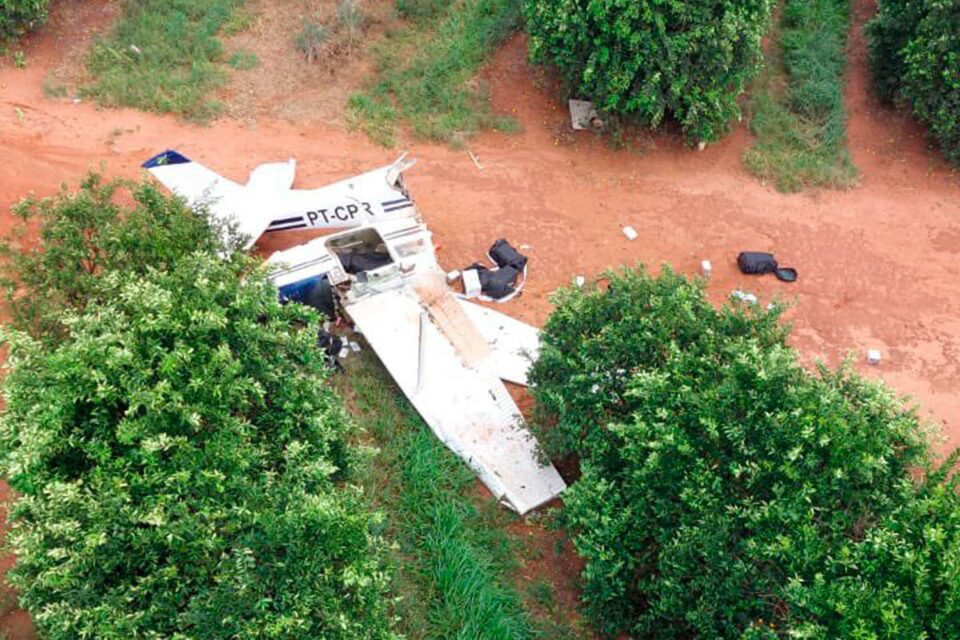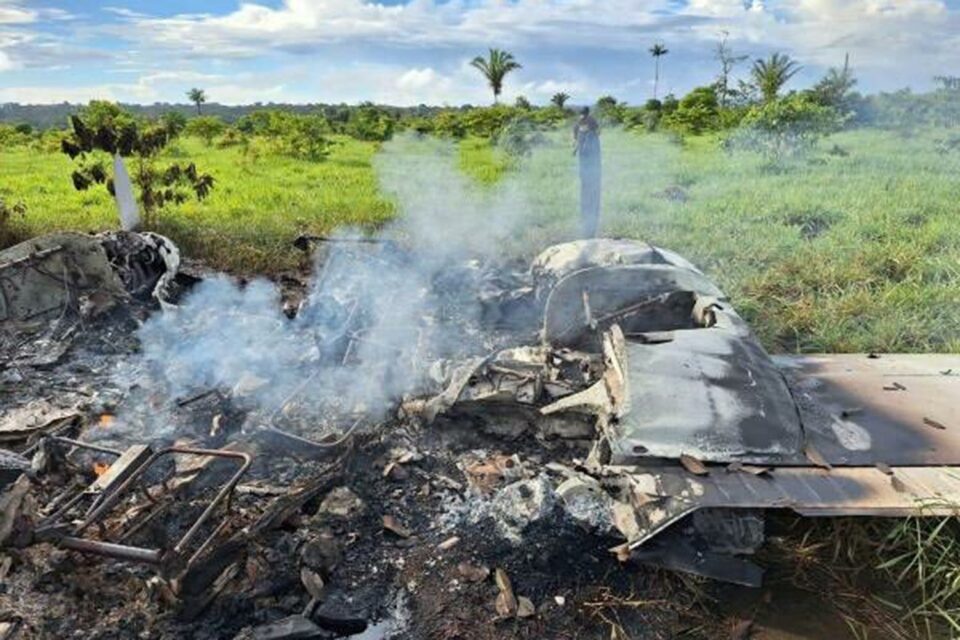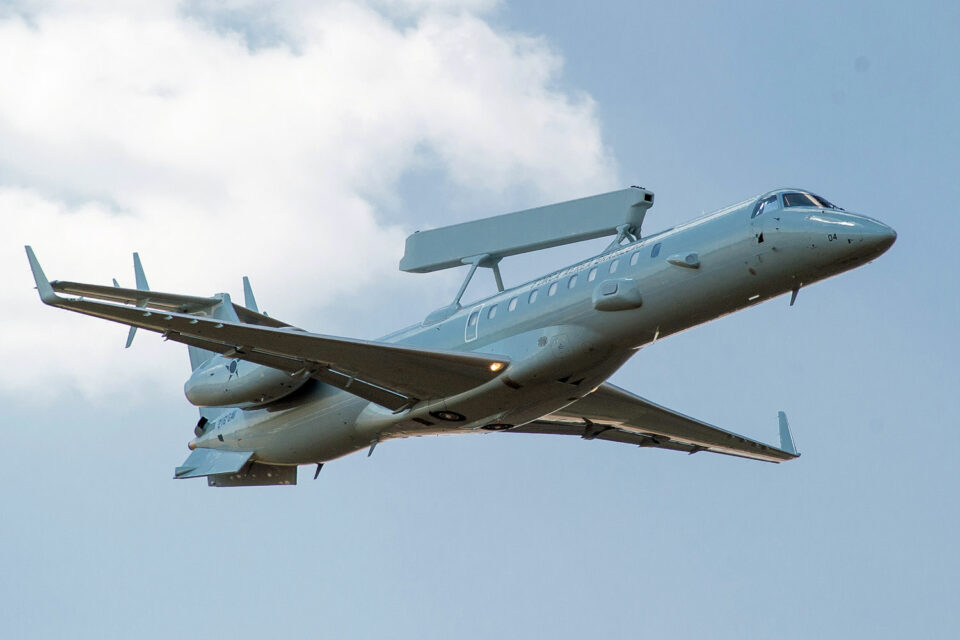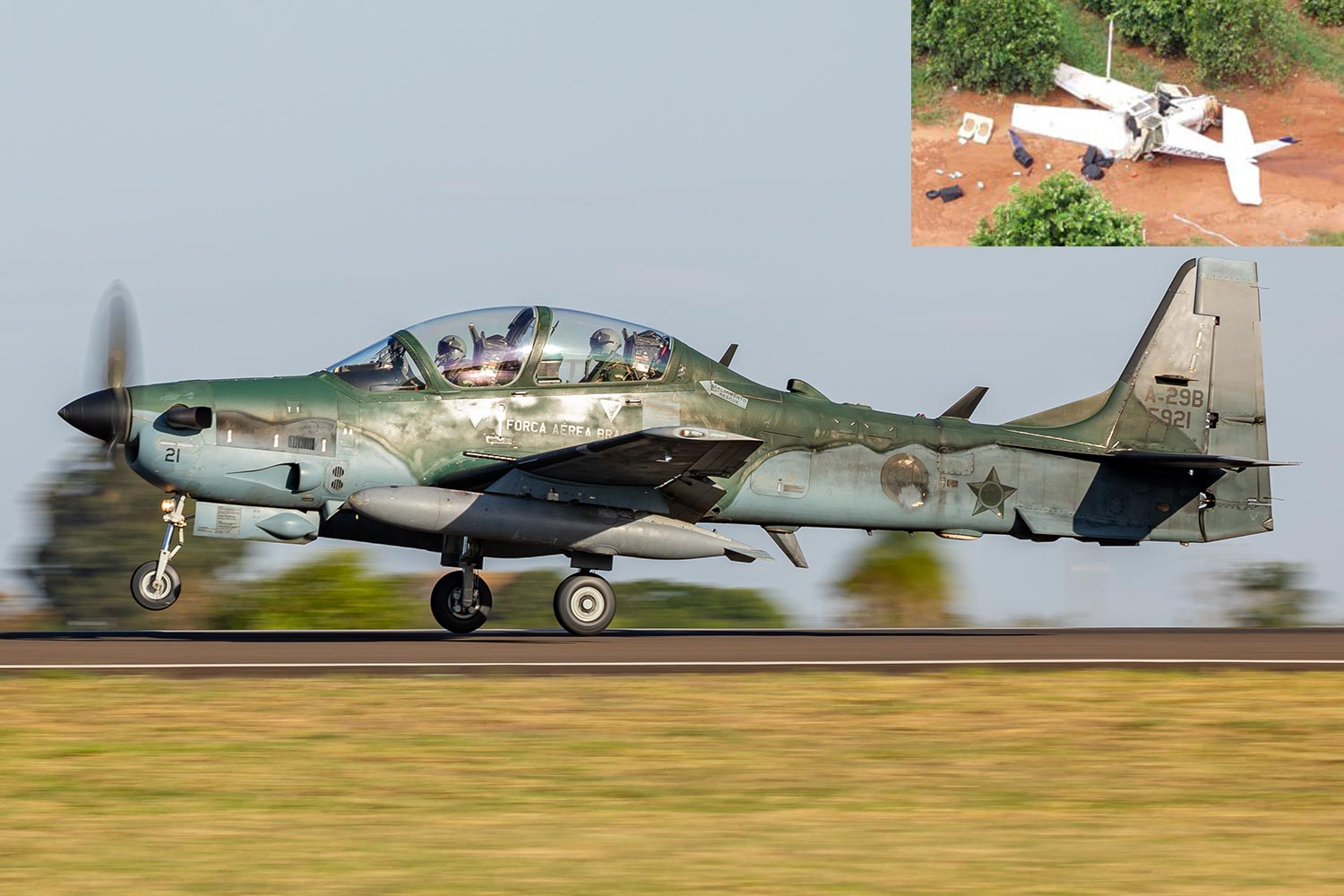The Brazilian Air Force (FAB) has deployed its aircraft to intercept planes invading the airspace at a high frequency, ut there were no attacks on the South American country. They are small single-engine and twin-engine vehicles that try to transport drugs from neighboring countries.
Although interceptions are routine, in recent days attention has been drawn to the fact that A-29 Super Tucano planes were deployed twice in less than 48 hours to prevent drug trafficking aircraft from reaching their destinations in Brazil.
On Tuesday, April 9, a single-engine Cessna 182, registration PT-CPR, entered Brazilian airspace from Paraguay.
Follow Air Data News: WhatsApp | Google News | Instagram | LinkedIn | Twitter | Facebook

The aircraft was detected by the E-99 airborne early warning (AEW) jet, which scrambled the A-29 turboprops.
The Super Tucanos intercepted the Cessna and urged it to land at Londrina Airport, in Southern region of Brazil, however, the pilot made a forced landing on a farm.
Upon touching the ground, the single-engine plane was destroyed, but the occupants fled, leaving the drugs behind.

Seneca burned
In the afternoon of the following day, a twin-engine EMB-810D Seneca, registration PT-RQY, left Bolivia towards Brazil and was detected again, flying at low altitude.
The A-29s took off again to intercept the new invader. After disobeying the order to land, the Seneca received a warning shot and its occupants made a forced landing in an area that was difficult to access.
This time, however, the two men on board managed to set fire to the aircraft to destroy the illicit cargo before fleeing on foot.

Huge border
Brazil is a traditional route for drug trafficking and its huge border makes aerial patrolling difficult.
The twin-engine Seneca transporting drugs after being intercepted by the Brazilian Air Force A-29. #fab pic.twitter.com/QbfJtNRyBM
— Air Data News (@airwayaviation) April 13, 2024
Traffickers use small planes that fly at very low altitudes to avoid detection, but Air Force radar systems have been able to track them.
Due to their low-speed operational characteristics, these single-engine and twin-engine aircraft are more easily neutralized by the Super Tucano, a more powerful variant of Embraer’s light attack aircraft.

